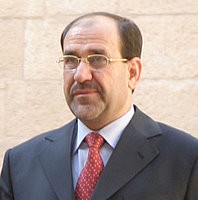Though overshadowed by recent news coverage focusing on Iraq’s still-fragile security situation, the country’s political stalemate remains a matter of concern. Prime Minister Nouri al-Maliki refuses to share power with his rivals. But while Maliki’s relative influence is large, he is constrained by Iraq’s parliamentary and federal systems, a gift of the now-departed Americans. Meanwhile, his opponents are weakened by divisions over ethnicity, region, ideology and competing personal ambitions. As a result, they have been unable to remove Maliki from office or force him to yield back the powers he has steadily accrued during his six years as prime minister.
A power-sharing agreement brokered in November 2010 at Erbil among Iraq’s key political actors was meant to establish a balanced coalition government, in which key executive branch posts were to be distributed among the main parties in rough proportion to their electoral strength. A newly created National Council for Strategic Policy was also meant to broaden representation in policymaking beyond the cabinet. The resulting checks and balances, it was thought, would prevent the government from adopting extreme positions by requiring compromise policies acceptable to all the major stakeholders.
Since then, however, Maliki’s critics claim he has ignored the Erbil agreement, instead accruing excessive power, bypassing the Iraqi constitution and bringing under his personal control the country’s other political institutions, including the judiciary, federal agencies and the nominally independent election and integrity commissions and central bank.

